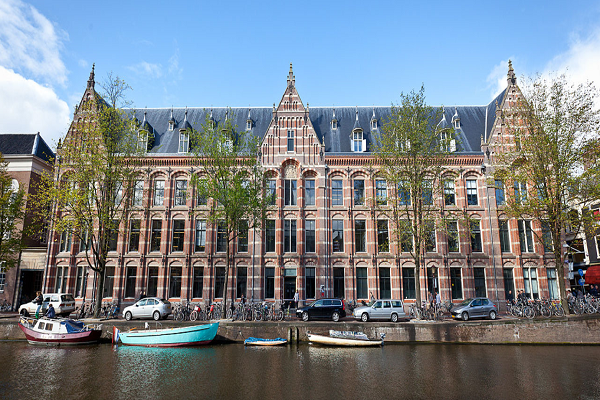University of Amsterdam: The structure of UvA’s CO2 footprint
Sustainability is an important theme for the UvA. In addition to conducting research and teaching about sustainability, we work on a daily basis to make the university itself more sustainable. Our goal is to reduce our environmental impact by 25% over the next five years, and we wish to have achieved the goals of the Paris Agreement by 2040.
Many measures are taken to achieve the sustainability goals, from reusable coffee cups to natural gas-free campuses. We focus on the measures that allow us to reduce the most emissions as quickly as possible. Our own emissions are therefore leading, but we also consider the society-wide impact of a category. This article mentions just a few of our objectives and measures. A complete overview can be found in the white paper on sustainability (in Dutch) and the appendix with operational objectives (in Dutch).
Focus on Energy consumption
In the coming years, we will focus on reducing energy consumption for the buildings. Although this pollution is not the most visible, our current energy consumption accounts for almost 40% of the university’s CO2 emissions. In order to reduce our emissions here, we are working on natural gas-free campuses, taking energy-saving measures and generating our own energy, among other things.
Foreign business trips
Visiting international conferences forms an important part of our researchers’ work.
However, these foreign business trips account for 5.7% of our total CO2 emissions. In order to reduce these emissions, we have agreed that researchers will take the train if the destination can be reached within six hours. In addition, the train is still the preferred option for journeys of up to eight hours. These are the first measures aimed at reducing emissions from business trips. With this we want to achieve that emissions from business trips will be at least 25% lower in 2026 than in 2019.
Food
Food is an interesting category, as although food production is an important global factor for climate change, it does not even account for 1% of the UvA’s total CO2 emissions. This is simply because the UvA offers lunch and dinner, but many students and staff take their own food to the campus. Because it is extremely important to make our food system more sustainable in a broader perspective, we will also increase sustainability in this area. In 2026, we want to reduce the CO2 emissions of the food sold in the canteen by 25% compared to 2019. In order to achieve this, we are offering more and more vegetarian and vegan options and only food that has been responsibly produced.

